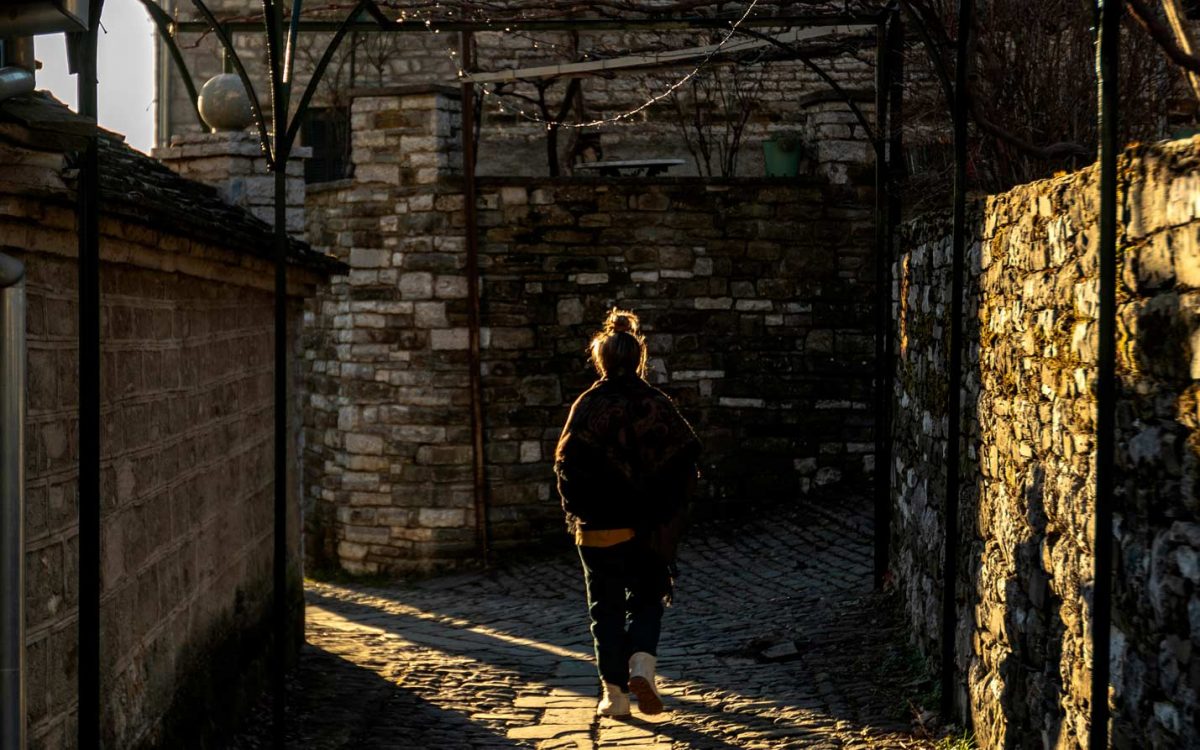Papigo, Zagorohoria, Epirus
“We greet each other from our windows”
by Kostas Tsoumanis, hotelier
On Saturday, the weather was good and the village was busy, people had come for an excursion from Ioannina, as well as from further away. But because the closure measures were being observed, the visitors had nowhere to eat or have a coffee and left.
The village is quiet, we are staying home; my wife is due to give birth in May and we have decided not to leave the house at all. We go out in our gardens, we greet our neighbors from afar, from our windows. These days some people came from Athens and Ioannina who have country houses here; they will be safer in the village.
During this period, hotel owners and generally all of us who have touristic businesses usually undertake maintenance and seasonal tasks, pruning and tending our gardens, as well as painting and doing renovations small and large. This year we are quite busy responding to emails regarding our cancelation policy, it is a daily task. This makes our days more difficult.
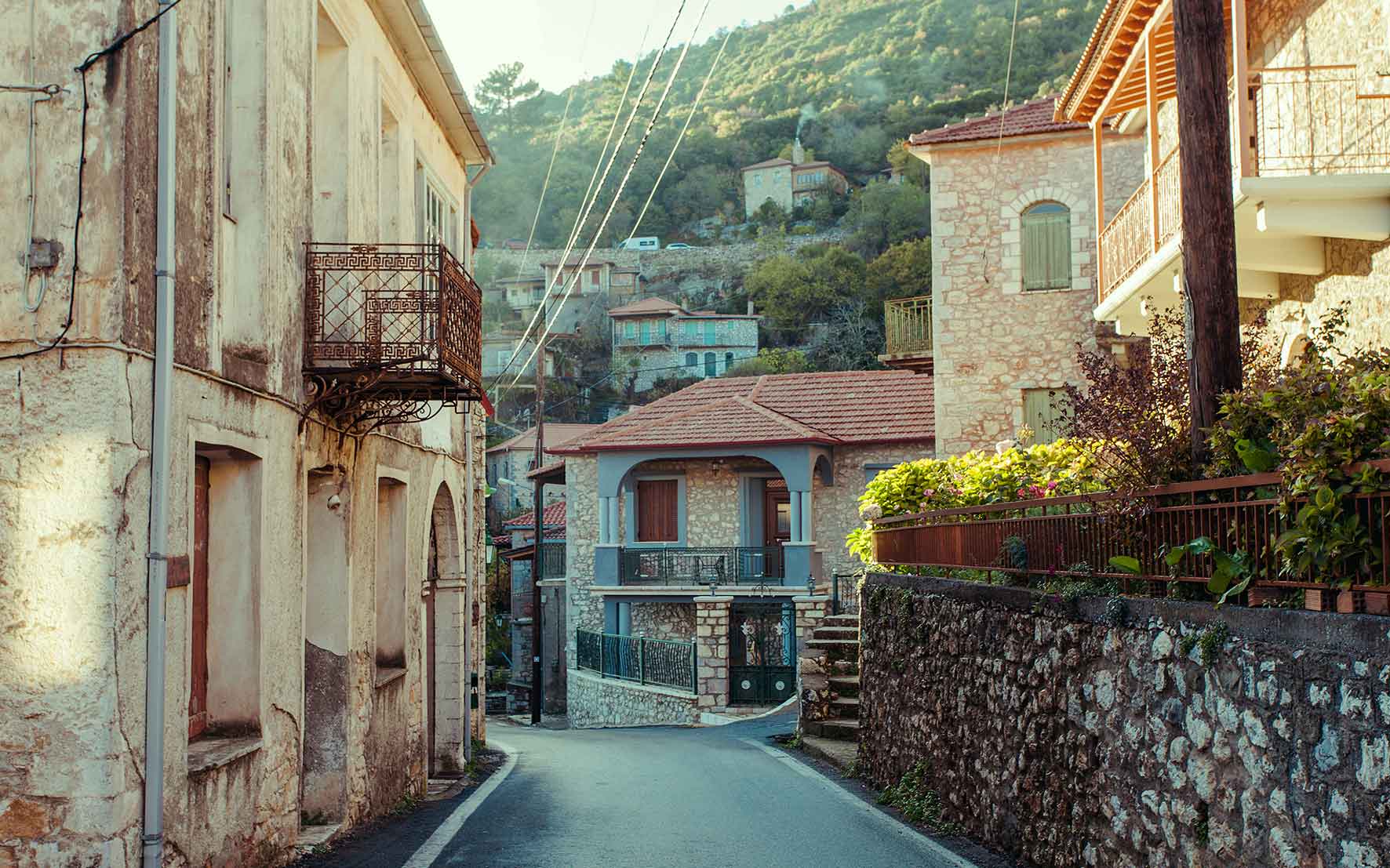
© Shutterstock
Stemnitsa, Arcadia, Peloponnese
“Many didn’t want to cancel”
Nena Grintzia – guesthouse owner
All the shops are shut. As of today they are opening for delivery services with a special emergency permit which will be issued in the coming days. The Citizen Service Center (KEP), the country doctor’s office and the health center in Dimitsana are offering treatment for only emergency cases or by phone.
On the streets today (Monday) there isn’t a soul to be seen. On Sunday you saw a few people out for a stroll in pairs, but anyway the locals usually stroll alone or in pairs. Lonesome walks are a common sight for the village.
Some people are terrified. Others who don’t watch television are calm. And still others make light of the situation to cope: the young mostly, students at the Silver – Gold Smithery School, who, despite the school having shut, remained in the village because they can go for nice excursions on the mountain here, as they told me.
The weekends have changed. Under ordinary circumstances holidaymakers come together with those who have homes. I have a guesthouse, I had guests until the announcement was made that restaurants would close. The guests asked me if they could stay and cook at the guesthouse but I couldn’t let them; I don’t have the relevant permit.
Subsequently the closure of hotels came, and I immediately canceled all of my reservations which were from abroad – many visitors didn’t want to cancel. Today they informed us that only seasonal hotels have to shut – we who have a permit for 12-month operation can remain open. There is no logic in that. So I decided that I would close regardless – I have a responsibility towards the guests and my staff to keep them safe, to the extent that I can.
I hope that this unpleasant situation proves an opportunity for changes to be made for our benefit. On a personal level, I see it, at the moment, as an opportunity to regroup. To paint my guesthouse, to tend to my gardens in peace and for once to celebrate Easter with my family, without having to work. I hope that everything goes well, and that this too shall pass.
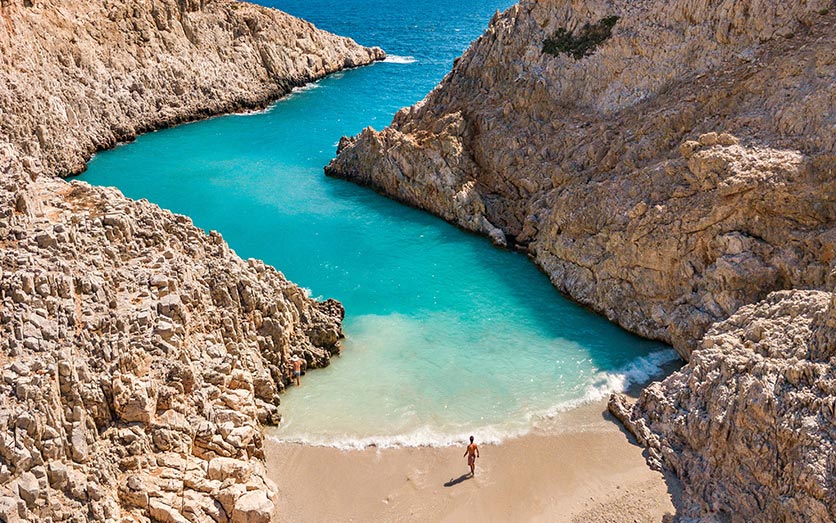
© Srdjan Vujmilovic, Instagram: @srdjanvujmilovic
Akrotiri, Hania, Crete
“Boredom and uncertainty are common”
Lisa Radinovsky, Writer, Founder of GreekLiquidGold.com
Our suburban neighborhood is quieter than usual. I occasionally hear a ball bouncing as lone youths shoot baskets, and a number of people visited the local beach on Saturday afternoon, but most children are staying indoors, most neighbors seem invisible, and even the dogs are making less noise. I can hear the birds, both from my desk and when walking in olive groves full of wildflowers. Children and parents discuss the latest news about numbers of confirmed COVID-19 cases on the island and debate the wisdom of leaving the house for fresh air and exercise.
Supermarket shelves have generally been well stocked, with piles of bottled water in one aisle, beans, pasta, and rice in another, although rubbing alcohol and wipes are not always available. Clerks wear gloves at the checkout counters, sometimes spraying the counter with disinfectant. Some of the shoppers stocking up on Saturday were wearing the high-priced masks that had been missing from pharmacies before a recent shipment replenished the stock. At a village bakery, an employee asked a coughing customer to move away from others.
Children were initially delighted by their school holiday. However, as caution separated many from their friends and limited their movements and activities, the idleness became oppressive. On weekdays, the buzz and bang of machinery indicate that home construction and tree pruning continue, but a tour guide and a hotel employee wonder if they will be able to pay their rent. Boredom and uncertainty are common: what next, and for how long?
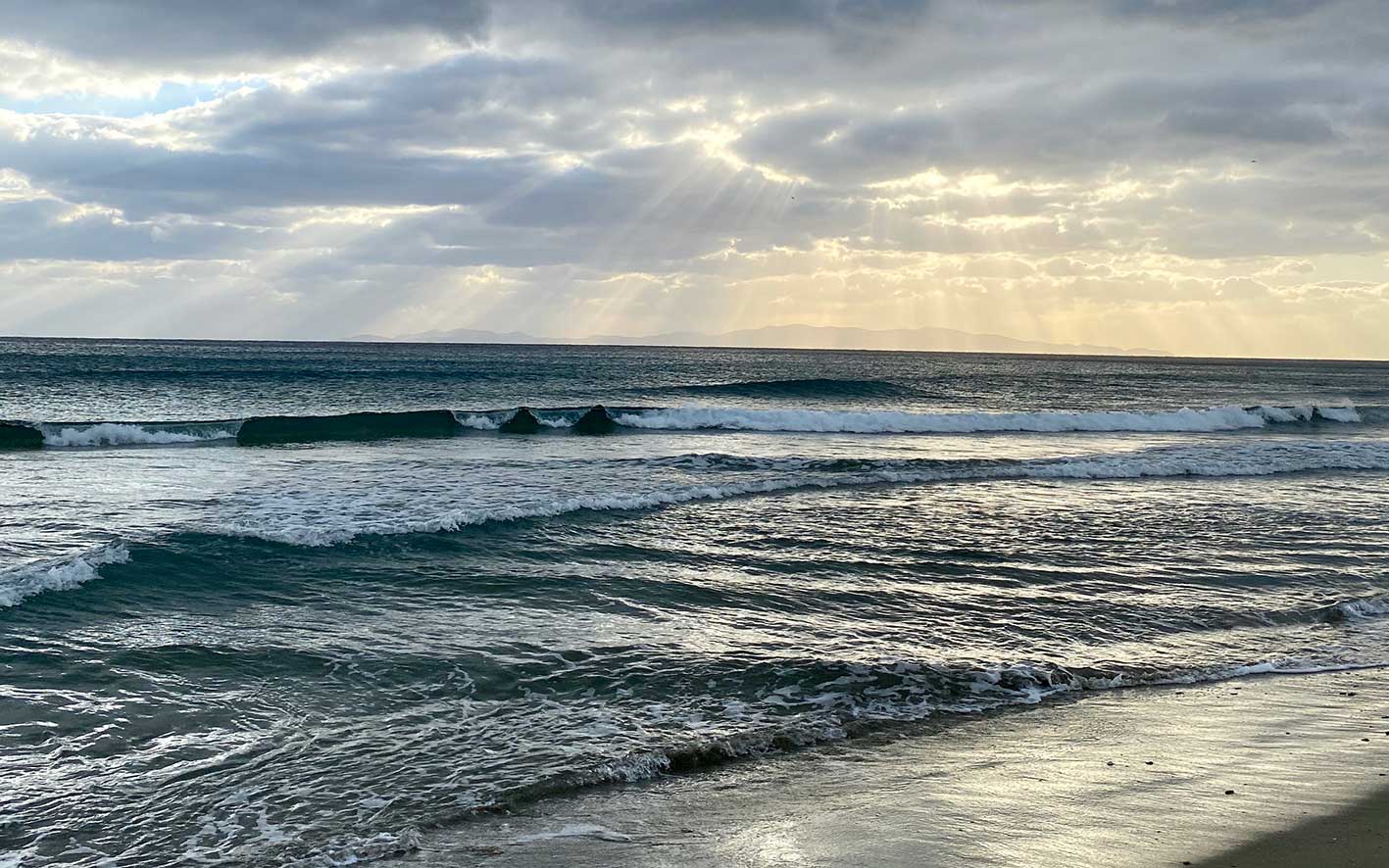
© Antonis Asimomitis, Instagram: @antoniskun
Tinos, Cyclades
“Tinos adapts”
Valentina Gavrielatou, tour guide and president of the Tinos Health Center
I live 4km outside of the Hora of Tinos, in the small village of Lagades. Today (Sunday), we had incredible sunshine. And Tinos is green, a beauty. Some foraged for wild greens, others have vegetable patches and tended to them. In Aghios Fokas people ambled about. They walked alone or in pairs without crowding.
On the one hand there is a cautious optimism, with a feeling of, “Okay, we will get through this.” On the other there is fear. And just as in all small communities, so too here, rumors swirl. Last Monday, when a pregnant woman’s water broke and we called a helicopter to take her to Athens, within five minutes it had spread across the entire island that we had a coronavirus case. As president of the Health Center, I had to make an announcement on Facebook to put a stop to this rumor.
Two days later, on Wednesday, when it became known that the schools would shut, the boat from Rafina to Tinos was full – so much so that some people couldn’t get on. Families with relatives on the island decided to come so that the kids would have something to do (which is exceptionally dangerous because they could infect their grandparents, as occurred in Italy).
Fortunately, the wave of arrivals subsided – yesterday (Saturday), my husband who had gone out with the car told me that no more than 30 people disembarked from the boat from Rafina.
One of the pieces of good news is that through the Association of Friends of the Health Center we put out a call asking for volunteers to create a team of people who would transport food and medicines to the villages to people who need assistance. One by one, a total of 10 came forward. Our next move is to coordinate with the presidents of the different communities for them to inform the villages that there are volunteers who can bring them food, and that particularly older folks don’t need to go all the way to the supermarket. We will leave the supplies outside their doors. And if needed we will take additional initiatives.
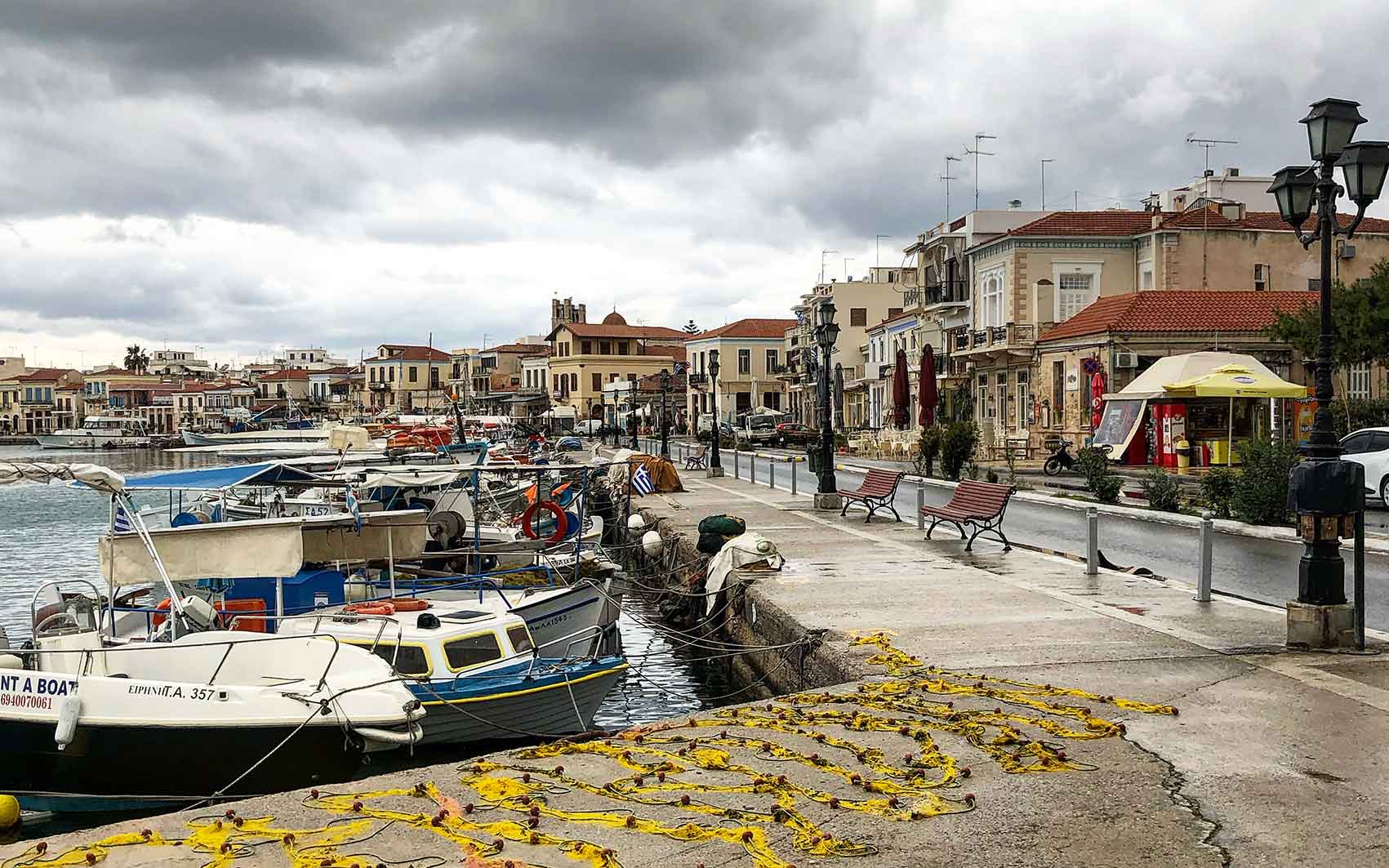
© Veronica Lappas, Instagram: @verolappas
Aegina, Saronic Islands
“This way I can pay my employees”
Thodoris Miras, café owner
Three hours after they announced the closing of cafés and restaurants, I had made the necessary changes to stay open. My café was completely disinfected and the seating space closed. Since we already had a license to deliver, that seemed like an easy switch and a win-win for everyone: myself, my staff and our customers. This way I can keep working and pay at least some of my employees. We prepare everything on the menu, but instead of wearing the regular aprons, we wear masks inside and three of my servers put their helmets on and deliver to people’s doors. But I don’t know how long we can keep going. The orders are few, and almost no one orders food. They’re afraid. Also some say there will be no emergency benefits paid to restaurants that stay open.
Most people get coffee to go. I see on Instagram that some of them are taking their drinks home and to work, but a lot of people are enjoying them outside, on hikes along the coast and such. While most locals are following the instructions to stay home, those moving around seem to be doing it for unnecessary reasons. They’re elderly people, tourists and people from Athens who came here for the clean air.
Aegina is full of vacation houses, and in the evening, you can tell that more people have arrived from the lights in the windows. That’s the only way you’ll notice though, because the stores that are still open are empty. It’s frustrating to see people arrive from the city and move around. What if they get sick – we don’t have enough beds in our small hospital.
My wife and my baby daughter stay at home, as do most families with kids. This week brought a bad mood and bad weather, with the wind howling across the Saronic gulf. I want to keep my business open to support the community, but my patience is running out, and I’m tired and scared.
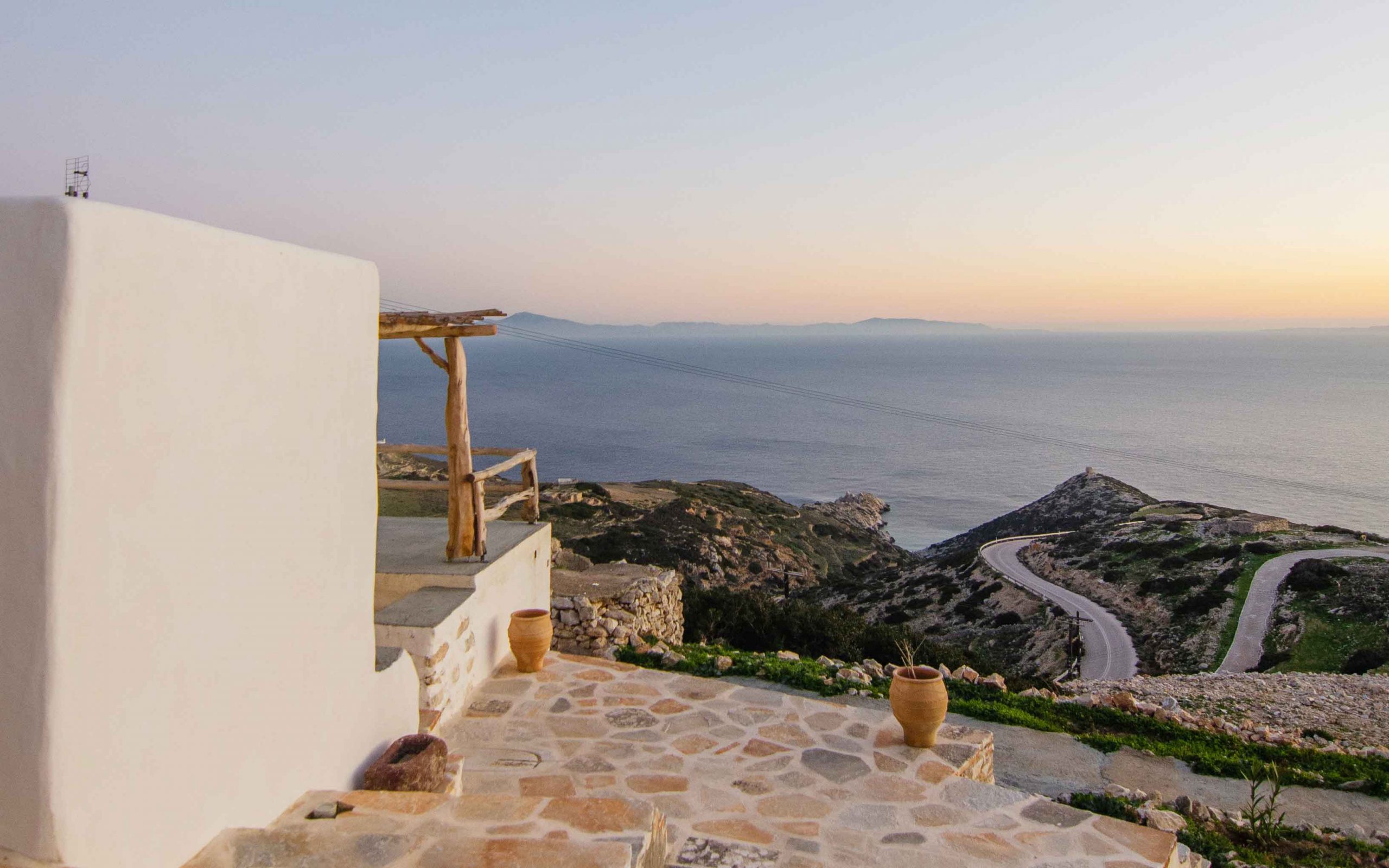
© Dimitrios Markoulis, Instagram: @dimitrakisguesthouse
Donousa, Cyclades
“The only change is the fear we feel,”
Sophia Roussou, grocery store owner
Until about a week ago, no one was paying any attention to the issue. We hadn’t taken it seriously – I personally even laughed about it, despite having small children.
When we saw the prime minister’s address we were shaken, and when the police from Amorgos called the president of the community and told him to shut the only four [cafe/restaurants] that operate in the winter, that is when we really started to worry.
The schools shut, the playground and the five-a-side football ground, too, the cultural association’s events were canceled, and the teachers left – only 2-3 remained. The island has about twenty kids and now we don’t know what to do with them. We don’t allow them to play together, at most they might be outside for a bit and without many games.
Since Friday everyone moves about with alcohol and wipes in their pocket. I run the island’s supermarket and we have sold out of those items, and in Naxos they don’t have any to send me.
In practice not much has changed, aside from the fear we feel. 130 people live here, we all work as normal, only the afternoon coffee at the kafeneio has been cut for most. Of course they still take it to go and you see them drinking it outside, sitting on benches apart from one another.
It goes without saying that none of us want to leave the island, either for business or anything else. We canceled everything even vaccinations for the kids who we take to Naxos. We are concerned of course, that elderly Donousans who live in Athens might come here to take refuge and bring us the virus.
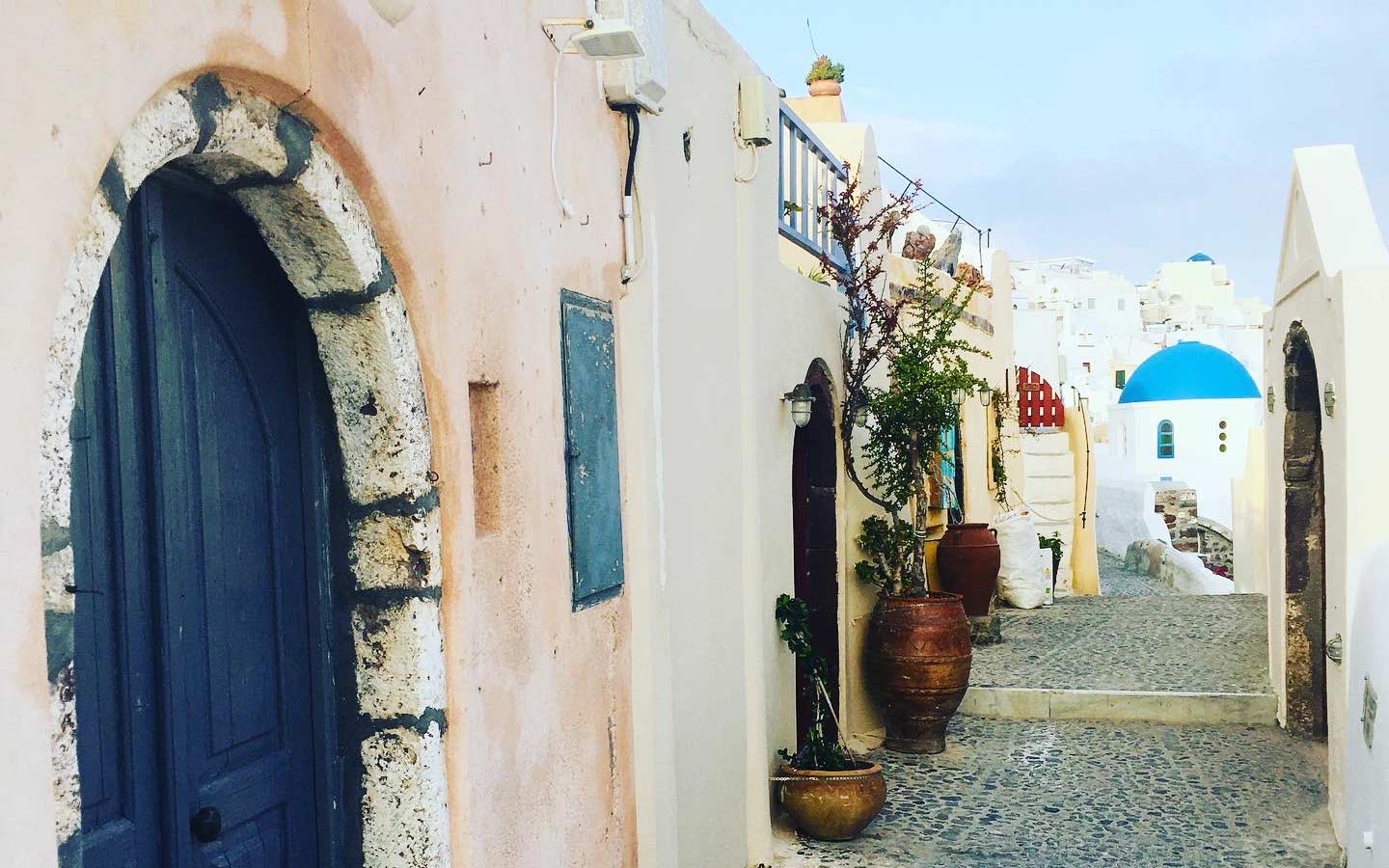
© Krista Johnson, Insta: @travel.1016
Santorini, Cyclades
“Take away on Santorini”
Anthi Patramani, IT professor
Are there tourists these days? I think so, yes. From what I know because I don’t go out. On Thursday when I went to the pharmacy I met two tourists, who wanted to buy masks for their return trip to their countries. They weren’t Chinese, we don’t have any Chinese visitors.
There was an economic toll and some pain from the cancelations over Chinese New Year, at the end of January. But Santorini is a destination that operates 365 days a year, we had tourists in January and February and March. To date, from what we know there hasn’t been a confirmed case of coronavirus. The island is following the government’s measures. The traffic on the streets is clearly much less, the cafés and the restaurants are shut. Many of them have put their numbers on Facebook for people to call to place orders. Take away, not delivery.
Despite the measures, the atmosphere on the island is unexpectedly good. There are, of course, some panicked buyers who empty the shelves of the supermarket; there are however also many people who only buy the few things they will need over the coming days.
An executive order was issued which essentially suspends the operation of seasonal touristic enterprises, and while one might have expected that this would trigger a great hue and cry on Santorini, from what I have seen from comments on social media, as well as from talking to acquaintances, is that this is something that brought a sense of relief.
One problem that we will face on Santorini until tourism returns to normalcy is that there will be people who will struggle to make ends meet. These are the seasonal employees who were waiting to start work which will now be pushed back. That’s why it is very important, beyond the measures that will be taken to support business, to support workers as well.
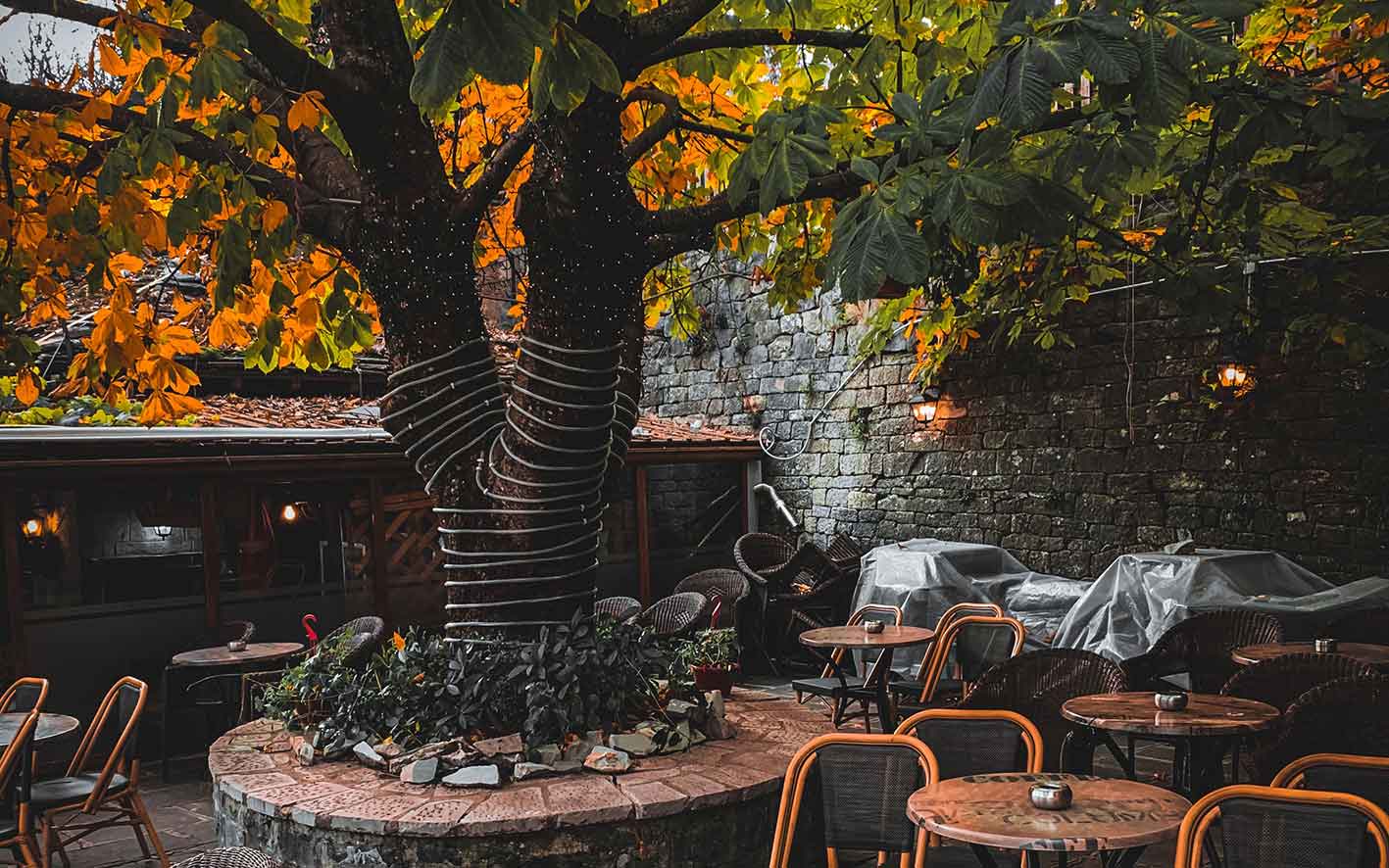
© Yiannos Pavlides, Insta: @yiannospav_
Metsovo, Epirus
“The defences of a small community”
Name withheld
Until today there hasn’t been a confirmed case, and that’s why residents are not very pleased by the presence of visitors. They believe that the only way for the virus to reach here is via travelers, and so when on Saturday (14/3) a bus with Asian tourists arrived, they panicked and all hid behind closed doors.
The measures requiring the closure of shops is being observed and one can only see a few people milling around in small groups around the the church of Aghia Paraskevi , in the central square, opposite the café that provides take-away beverages. And there the required spacing is being observed.
The bakeries are busier, as now the people who used to eat in restaurants and tavernas are also buying bread. For the church service there were fewer people, while even fewer took communion.
In general though the locals consider it not only their obligation to not move about when unnecessary, but also are critical when other residents do so. Social criticism supports the implementation of the rules.
While we are only at the beginning of the quarantine, Metsovites can, if they need, get some fresh air in the Averofeios Garden, or walk, or take a nice bike ride in the forest that surrounds the village.
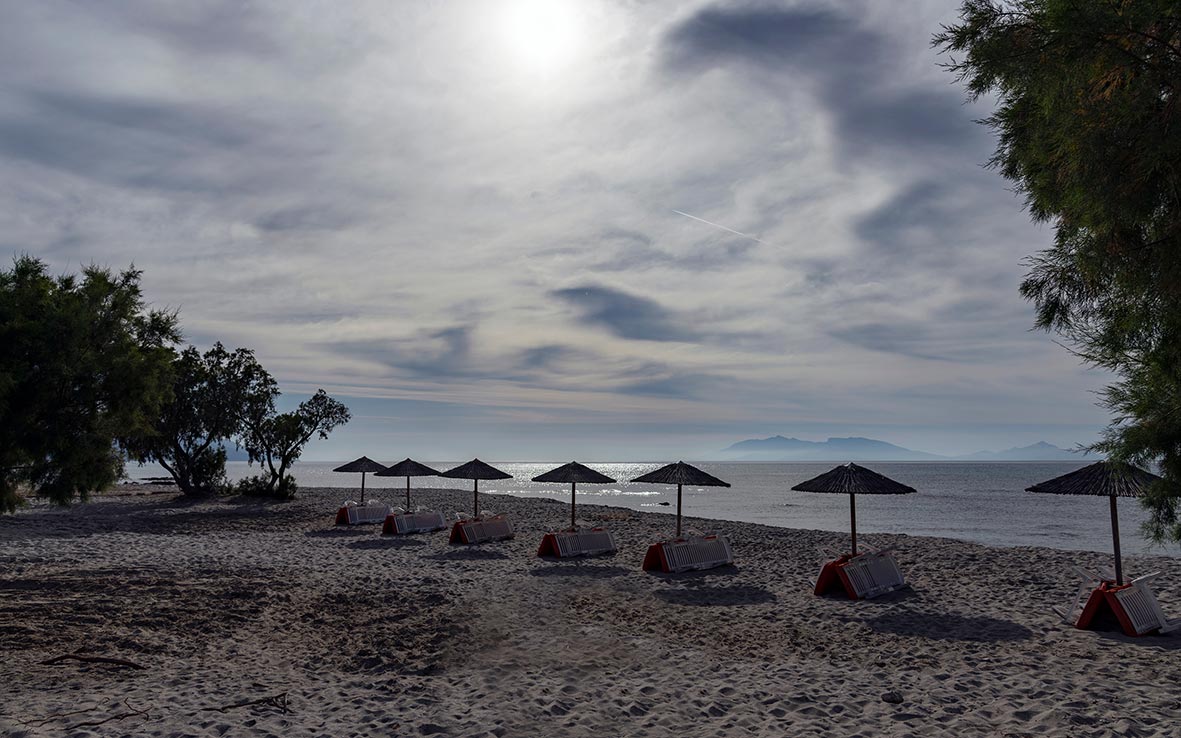
© Shutterstock
Kos, Dodecanese
“It is difficult to control the elderly”
Sophia Karagianni, teacher
Here in Kos, generally the “stay home” order is being upheld by all those able to. I am a teacher of English and photography in a school and so have been closed up indoors for some days now. I am taking a seminar on school bullying, via tele-learning, as well as Spanish lessons, while we decided with my students to continue our lessons online! And so I give them photography exercises to do in their homes and they are kept busy and engaged.
Additionally, we are participating in the Tipping Point training program through the 100mentors platform: the kids select the topic they want and their mentor, and are connected to them. We now requested to connect with the photographer Panayis Chrysovergis to advise us on the lessons.
Otherwise, people move about outside discreetly and with “love from afar”. Despite this, as I swim throughout the year, yesterday when I went to swim the beach was full of people and families. Cafés and restaurants are shut and all activities have stopped – even organized hikes, despite them being an outdoor activity.
It is difficult to control the elderly. They are heroic types, what can I say… They go out as normal for their shopping, to swim, as if the situation doesn’t affect them. In some supermarkets there are already shortages. Today the ferry line that connects us with Turkey was stopped, and there is a rumor that the Greek routes will also be suspended. Our island relies on tourism, and with the measures that have been taken we have realized how serious things are. Who knows what awaits us.
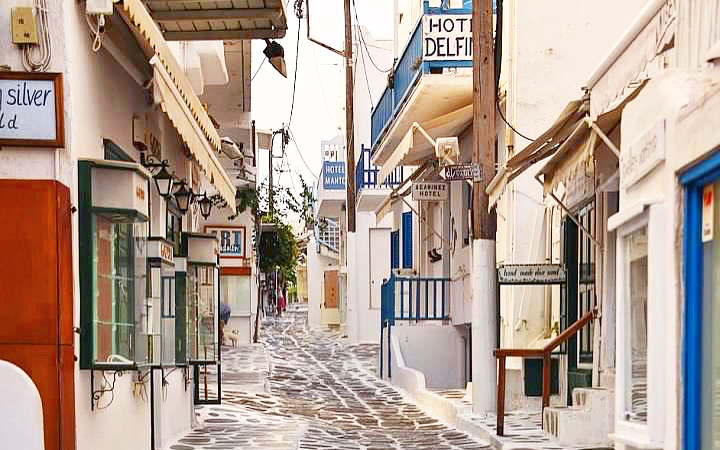
© Jonathan Williamson, Instagram: @williamson405
Mykonos, Cyclades
“The solidarity baskets were full”
Dimitris Rousounellos
These days I am reading Thomas Mann’s “Death in Venice”. In the book, there is an attempt to suppress news of the spread of the plague to protect tourism in the area. This example cannot happen in Mykonos, because such news spreads quickly, so that we may all protect ourselves. There is not yet any news of a confirmed case, but people seem to have understood, to have restricted socializing and moving about, everything is shut.
It is still early, but I feel like the virus has already affected us so much that we keep our distances from one another, even within the family. Beyond the economy, relationships will also be put to the test. We don’t go to see friends anymore, nor does anyone come to us, despite our home always having been an open one.
I went out to walk in Gialos, and I had a very quiet walk. At this time of year, normally the establishments in Gialos are open, this year it so happened that the weather wasn’t good so that put them back some days. Up until a week ago we also had a few tourists on the island – Arab speakers, Indians and South Americans. The archaeological excavation of [the church of] Panaghia Portiani was underway, and some businesses were already finishing their renovations. Now everything has stopped aside from construction work. Crews continue to come and go and new builds continue to move forward.
The optimistic predictions of some is that the season will begin after May. In a place like Mykonos we cannot imagine our life without tourism. For the time being, everyone is supportive of local initiatives, of staying home, and helping as much as we can. On Saturday when I went to the supermarket I saw the solidarity basket was full, with products that are distributed to families in need. I felt good seeing that in times such as these, there are many of us who think of others.

